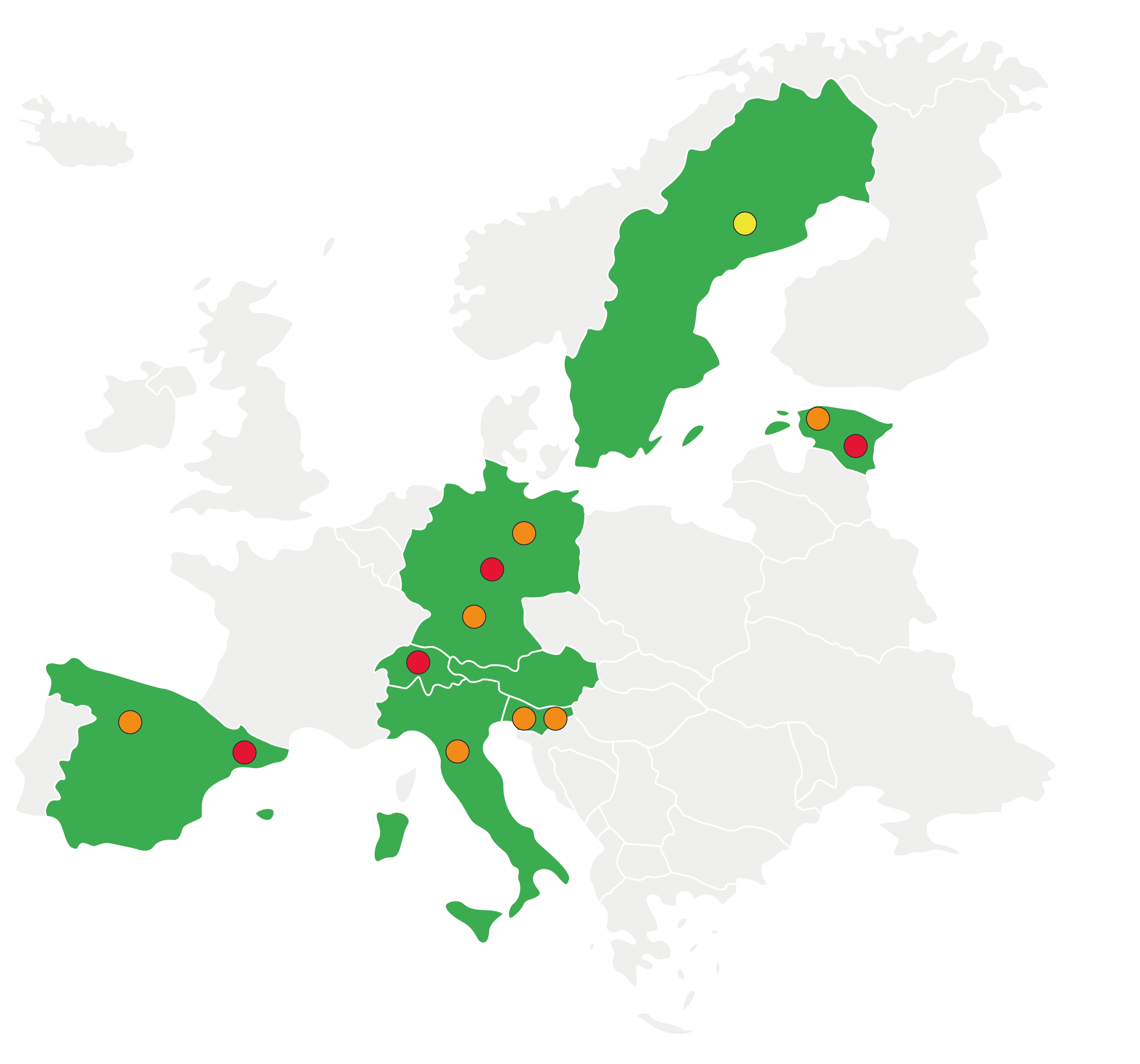H2020_ONEforest: A multi-criteria decision support system for a common forest management to strengthen forest resilience, harmonize stakeholder interests and ensure sustainable wood flows
Europe's forests are facing major challenges. Due to climate change, they are increasingly susceptible to storms, insects and droughts. At the same time, European forests should contribute to climate protection and fulfill a variety of functions, e.g. a steady supply of wood for the wood-processing industry, protection against avalanches and erosion, retention of rainwater, a place of recreation for tourists. Decision-making in forest management with regard to strengthening the functions of the forest is therefore becoming increasingly difficult and complex. The ONEforest project is developing a multi-criteria decision support system to illustrate this complexity for all stakeholders in the forest-timber value chain and to support decision-making.
Project background
Forest ecosystems (approximately 42% of the total land area of the European Union) are strongly affected by changing climate conditions, e.g. droughts, heavy rainfall events, frequent and intense storms, pests and forest fires. The EU-funded ONEforest project will tackle this challenge by investigating sustainable forest management in four European biogeographical case study regions, which should simultaneously safeguard or even increase the ecosystem services provided by the forest. This also includes wood utilization and the use of technical ground covers. A newly developed multi-criteria decision support system will inform decision making for stakeholders in the forest-wood value chain by assessing forest management, synergies and trade-offs between ecosystem services, reliable wood supply and stakeholders' interests based on social, economic and environmental dimensions.
Project objective
The overall objective of ONEforest is to develop a multi-criteria decision support system that assesses sustainable forest management, the synergies and trade-offs between forest ecosystem services, reliable timber supply and stakeholder interests using indicators for the forest-timber value chain, taking into account social, economic and environmental dimensions, thereby facilitating decision-making. Based on an interdisciplinary approach, this will contribute to achieving a multifunctional, resilient forestry and an optimization of the forest-wood value chain, taking into account the interests of the stakeholders involved and supporting the development of a bio-based society. ONEforest is of interest to various stakeholders in the forest-wood value chain, such as forest owners, industry, operators, logisticians, non-governmental organizations (NGOs), recreationists, etc., by involving stakeholders at multiple levels.
Project procedure
The ONEforest project is investigating in four biogeographical model regions (northern boreal forests in Estonia, Alpine forests in Switzerland, Mediterranean forests in Spain and continental forests in Germany) how the forest and the forest-wood value chain can be evaluated holistically from an economic, ecological and social perspective. To this end, various scenarios for the next 30 years will be developed in order to depict a forward-looking development of the forestry and timber industry in the EU. Due to the close links between forestry and the timber industry, a special focus is placed on the integration of interest groups in order to prepare companies and other stakeholders for changing material flows and products along the forestry-wood value chain and to create common perspectives for the future use of wood. Based on various target indicators, a multi-criteria decision support system will be developed, which will then be made available to players in the forestry-timber value chain.
Innovation
It is expected that ONEforest will lead to far-reaching innovations across the forest-wood value chain that will promote and support the bioeconomy in Europe (e.g. the development of a multi-criteria decision support system, a dynamic value chain model, sustainable forest management concepts and topsoil cover). The results have the potential to stimulate the economy by promoting Innovation and building new and competitive industries along the forest-wood value chain, leading to greater and more sustainable use of renewable resources. The full integration of knowledge and the identification of opportunities along the entire forest-wood value chain from the perspective of both wood users (industry) and wood producers (forest) will naturally lead to increased resilience of forests and support site-appropriate tree species selection, adapted stand structures and innovative silvicultural concepts, efficient forestry operations and transparent decision-making processes at regional level. It advances the state of the art by creating a shared vision of sustainable forest management and timber use across Europe.

Project lead
T +49 (0) 8031 / 805 - 2855 martin.brunsmeier[at]th-rosenheim.de
Project staff
T +49 8031 / 805 - 2957 Janine.Boesing[at]th-rosenheim.de
T +49 (0) 8031 / 805 - 2854 lina-maria.girata-sastoque[at]th-rosenheim.de
T +49 (0) 8031 / 805 - 2893 Julia.Seise[at]th-rosenheim.de
T +49 (0) 8031 / 805 - 2408 ferdinand.sigg[at]th-rosenheim.de
ORCID iD: 0000-0003-1122-482X
T +49 (0) 8031 / 805 - 2477 Sebastian.Hirschmueller[at]th-rosenheim.de
ORCID iD: 0000-0002-1135-8732
T +49 (0) 8031 / 805 - 2948 dominik.huettemann[at]th-rosenheim.de
Project collaboration
T +49 (0) 8031 805-2868 theresa.pscherer[at]th-rosenheim.de
ORCID iD: 0009-0006-0549-1605
Project duration
2021-06-01 - 2024-05-31Project partners

Project funding

Funding programme
Horizon 2020Weblinks
ProjekthomepageBericht über die Abschlusskonferenz
This project has received funding from the European Union’s Horizon 2020 Research and Innovation Programme under Grant Agreement №101000406.


